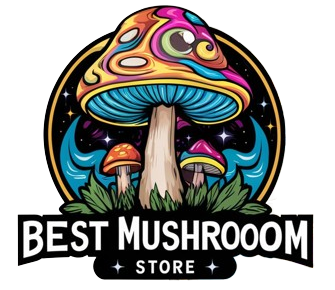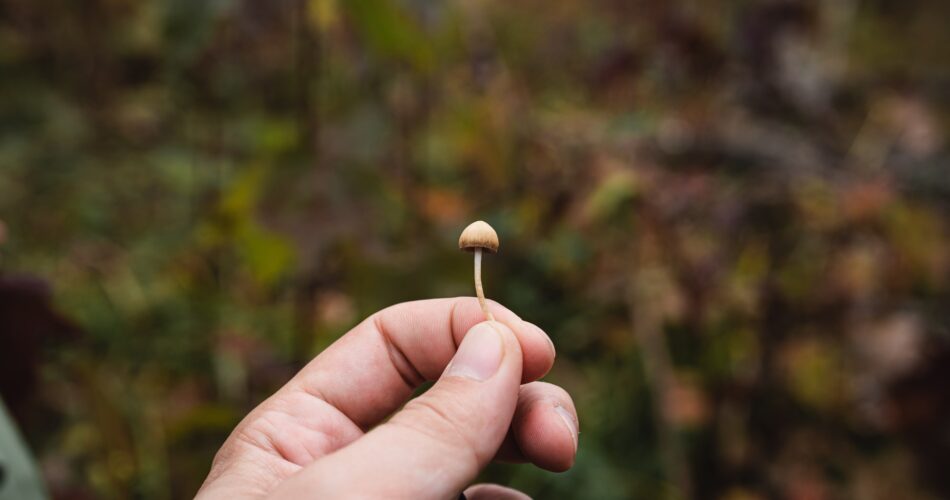One of the less known species of the Psilocybe genus is Psilocybe banderillensis. This small, unassuming mushroom is often overlooked in favor of its more flashy cousins. Read on to learn more about this interesting fungi.
Psilocybe Banderillensis: Appearance
Psilocybe banderillensis is a small psychedelic mushroom of the Hymenogastraceae family. The cap is conical (shaped like a bell) and chocolate or reddish brown. The size of the cap is very small, it can be anywhere from 5 mm to 12 mm across. The gills are adnate, close, brownish and whitish at the edges. The stem turns slightly blue when injured. It is thin, reddish-brown or brown.
Psilocybe Banderillensis: Habitat and Distribution
Psilocybe banderillensis is a type of mushroom that grows either individually or in small groups. They tend to fruit in autumn. P. banderillensis can be found in Veracruz and Oaxaca (southern parts of Mexico). This species of magic shrooms grow best in hot and humid conditions.
Psilocybe Banderillensis: Psychedelic Compounds
Magic mushrooms are a type of fungi that contains the psychoactive compound psilocybin. This naturally occurring substance can cause hallucinations and altered states of consciousness when ingested. In addition to psilocybin, magic mushrooms may also contain other compounds that can produce different effects, such as baeocystin and norpsilocin.
Psilocybe Banderillensis: Effects
While these mushrooms are associated with some risk, they also have a number of distinct effects on the body and mind. For example, they can cause feelings of euphoria, vivid hallucinations, and an increase in energy levels. The “magical” properties of magic mushrooms are gaining popularity in treating various mental health conditions, such as PTSD, depression and schizophrenia.
Psilocybe Banderillensis: Potential Risks
They can also induce nausea, dizziness, and extreme paranoia in some users. Additionally, it is important to note that the long-term effects of repeated use of Psilocybe banderillensis have yet to be well-studied, so more research is needed in this area. It is important to note that psilocybe mushrooms are illegal in the United States by federal law, and this particular genus of mushrooms is not yet well-known and researched, compared to other psychoactive mushrooms of the same genus.
Similar Posts:
- Psilocybe Guilartensis: A Potent Psilocybin Mushroom From Puerto Rico. Morphology, Habitat & Interesting Facts
- Psilocybe Muliercula: Discover a Rare and Potent Magic Mushroom
- Psilocybe Graveolens. Discover the Rare Psilocybe Mushroom
- Pluteus Glaucus: Rare Mushrooms Species
- Psilocybe Mescaleroensis: Potent Magic Mushroom Species
- Panaeolus Cambodginiensis: Magic Mushrooms Species
- Psilocybe Fimetaria: All You Should Know About This Magic Mushrooms Species




